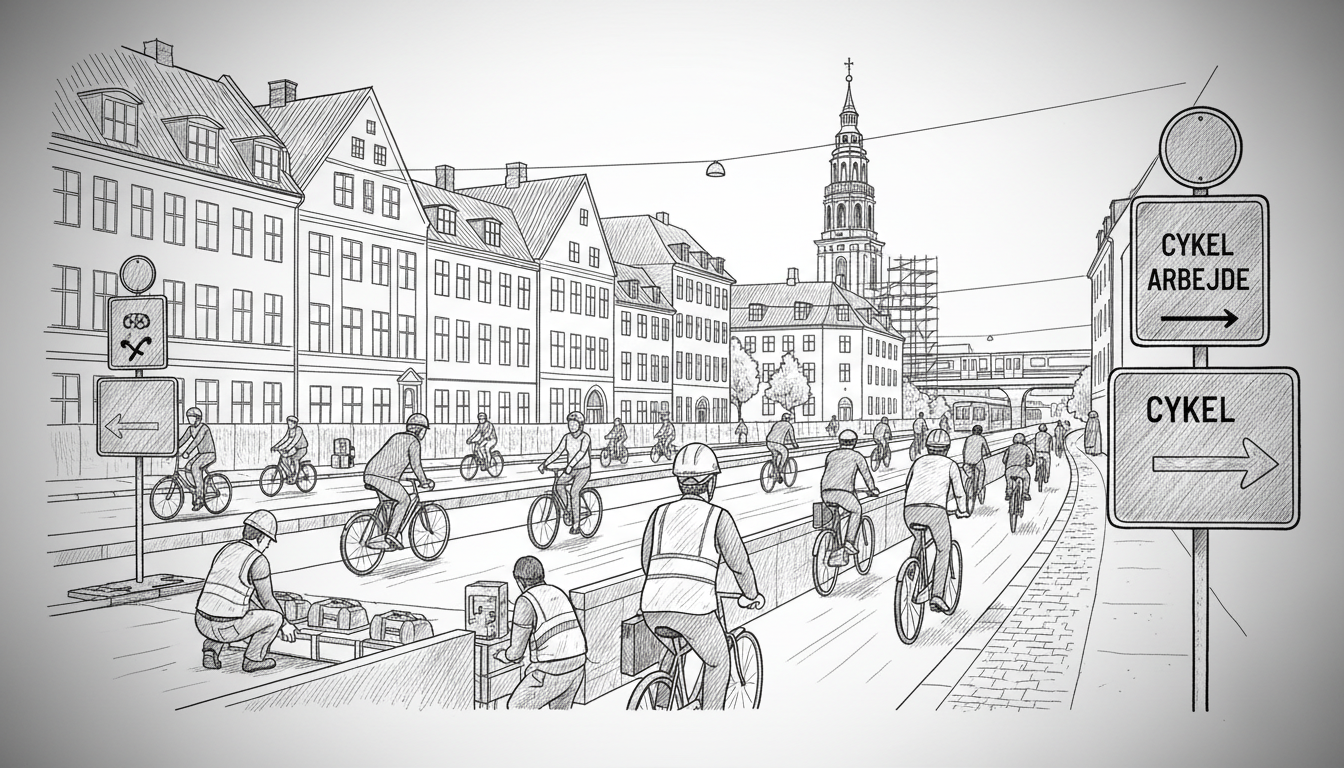Copenhagen's heavily trafficked Torvegade street is about to undergo a major transformation. The city will soon begin one of its largest bicycle infrastructure projects in recent years. Approximately 25,000 cyclists pass through this corridor near Christianshavns Torv daily. Many have noticed traffic flow could improve significantly.
Technical and Environmental Mayor Line Barfod announced the ambitious plan. She called it one of Copenhagen's biggest investments in bicycle infrastructure in many years. The project aims to create smoother traffic flow for the thousands of daily users.
This initiative represents Copenhagen's continued commitment to bicycle-friendly urban planning. The city has long prioritized cycling as central to its transportation system. Nearly half of all Copenhagen residents commute to work or education by bicycle. This creates constant pressure to maintain and improve cycling infrastructure.
The Torvegade project follows Copenhagen's established pattern of incremental bicycle network improvements. The city has systematically expanded dedicated bicycle lanes and traffic calming measures for decades. This particular corridor serves as a crucial connection between neighborhoods. It links the city center with the Christianshavn and Amager areas.
Why does this matter for international observers? Copenhagen's bicycle infrastructure investments often serve as models for other cities worldwide. Urban planners from Europe, North America, and Asia frequently study Copenhagen's approach. The city's continuous refinement of its bicycle network demonstrates how cycling can become a dominant transportation mode.
What challenges might this project face? Major infrastructure work in dense urban areas always creates temporary disruptions. The construction phase will likely require careful traffic management. City officials will need to maintain access for residents and businesses while work proceeds.
The timing coincides with Copenhagen's broader climate goals. The city aims to become carbon neutral by 2025. Expanding and improving bicycle infrastructure directly supports this objective by encouraging sustainable transportation.
Local businesses along Torvegade may experience both challenges and benefits during construction. While temporary disruptions could affect customer access, the finished project should create a more pleasant streetscape. Improved bicycle infrastructure often increases foot and cycle traffic to local establishments.
This project represents the ongoing evolution of Copenhagen's urban landscape. The city continuously adapts its infrastructure to meet changing mobility patterns. The Torvegade improvement signals that even well-established bicycle cities must keep investing in their networks.
The work demonstrates how mature cycling cities face different challenges than beginners. While new cycling cities focus on building basic infrastructure, Copenhagen must optimize existing high-volume corridors. This requires more sophisticated solutions and substantial investment.
When completed, the upgraded Torvegade should provide a better experience for all road users. The project will likely include clearer separations between different transportation modes. This enhances safety while improving traffic flow for Copenhagen's massive cycling community.

